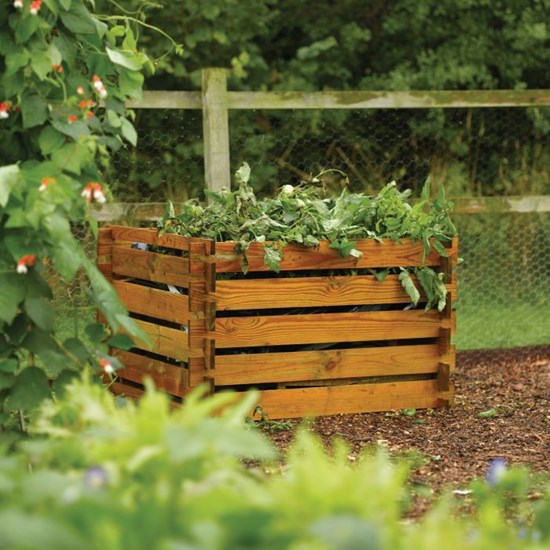SHOP, DONATE AND MAKE A DIFFERENCE TODAY!
Free UK Shipping on orders over £50

27/03/2024
Composting is the natural process of recycling organic matter such as food waste, leaves and greens into a valuable fertiliser which enriches soil and plants. Anything that grows naturally will eventually decompose but composting speeds up this process by providing an ideal environment for bacteria, fungi, and other decomposing organisms, such as worms, to do their work. The result of this decomposed matter is called compost, and it usually ends up looking like fertile garden soil. Compost is rich in nutrients and can be used for gardening and farming which saves costs on buying compost from a shop.
Recycling food waste and other organic waste into home compost provides a range of environmental benefits whilst also saving you money:
When organic matter decomposes, it undergoes aerobic decomposition which means it is broken down by microorganisms that require oxygen. When compostable waste goes to landfill, it gets buried under other waste which cuts off a regular supply of oxygen for the decomposers. The waste then undergoes anaerobic decomposition, broken down by organisms that can live without free-flowing oxygen. During anaerobic decomposition, biogas. This biogas is made up of methane and carbon dioxide, both of which are significant greenhouse gases, with methane being up to 36 times more effective than Co2 at trapping heat into the atmosphere.
Compost contains three primary nutrients needed by garden crops: nitrogen, phosphorus, and potassium. It also contains traces of other essential elements such as calcium, magnesium, iron, and zinc. Instead of relying on synthetic fertilisers which include harmful chemicals, composting offers an organic alternative. Compost can increase soil’s water retention capacity, productivity, and resiliency.
When organic matter is added to soil, it’s capacity to retain water increases. Each 1% increase in soil organic matter helps soil hold 20,000 gallons more water per acre. By using compost to improve soil health, gardeners and farmers do not have to use as much water but can still achieve higher yields compared with using degraded soil.
Consumers are responsible for a huge amount of food waste and the best way to reduce the impacts is to prevent the waste from happening in the first place. However, even if we do everything possible to decrease food waste, there will still be food scraps that cannot be consumed such as fruit peelings. Composting is a great way to recycle these scraps instead of throwing them into our bins.
Food and garden waste combined make up more than 28% of what we throw away. Not only does food waste have a significant impact on the environment, but it is also costly to treat. Home composting allows us to divert some of this waste from digestion and turn it into something practical.
Using a compost bin is the simplest and cheapest method for small-scale, home composting.
Closed Bin:
A closed bin keeps your composting materials together and helps retain heat and moisture. They have an open bottom, and you place the bin directly onto a patch of soil. The open bottom allows for nutrients in the bin to travel directly into the soil.
Open Bin:
Open-topped bins typically require less maintenance and are better suited for garden waste as you can simply pile materials and have easier access to the composting material. However, the main disadvantage of an open bin is that it can easily be accessed by animals or insects.
Tumbler Bin:
Tumblers can be rotated with a handle. By turning the container, you are aerating and mixing the materials inside which will help foster aerobic conditions to break down the materials and speed up the composting process. A sealed drum retains moisture and heat. Tumblers can convert waste into finished compost in as little as 3 weeks in ideal conditions. However, a couple of months is more common.
Anything that comes from the ground can be composted at home.
Can be composted:
Can’t be composted:
Why not get started by browsing our range of Home composting? shop now here : Composters & Wormeries
Registered office: Tanners Lane, Barkingside, Ilford, Essex IG6 1QG | VAT number 507477337
Barnardo's is a charity ( 216250 SC037605 ) and a company limited by guarantee.
(61625 England - see the governing document.)


